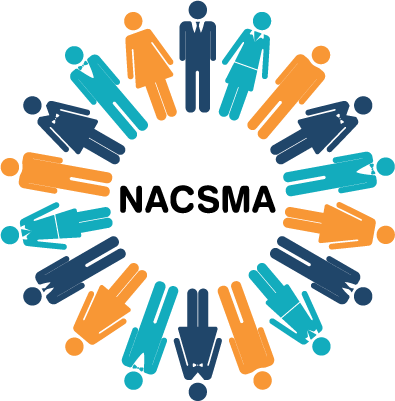TCPA – Telephone Consumer Protection Act
Telephone Consumer Protection ACT (TCPA)
Telephone Consumer Protection Act (TCPA) restricts telephone solicitations aka telemarketing and the use of automated telephone equipment.
TCPA limits the use of automatic dialers, artificial or prerecorded voice mail messages, SMS text messages and fax machine. The law also specifies several technical requirements for fax machines, auto-dialers, and voice messaging systems—principally with provisions requiring identification and contact information of the entity using the device to be contained in the message.
Recent Federal Communications Commission (FCC) rulings on TCPA and the use of automated dialers to call mobile numbers is having a big impact on outbound contact centers. Contact centers need to review their compliance needs and ensure that they have sufficient measures in place to protect themselves and their customers. When you know the rules you can win the game.
How to Maintain TCPA Compliance
Outbound contact centers, such as collection departments, must abide by the Telephone Consumer Protection Act. The TCPA regulates when and who telephone solicitors may call.
Here are several immediate strategies that can help you establish a plan for staying compliant:
– Manually dial calls.
– Obtain proper consent and document it. Consumers can OPT OUT by any reasonable means and should be honored immediately. Keep this up to date.
– Maintain “Do Not Call” compliance for your company.
– Maintain National “Do Not Call” compliance strategy.
– Use a vendor who has the ability to scrub cell phone numbers and other DNC numbers regularly from your call list. With the new FCC ruling OPT OUT trumps the DNC list. People who are not on the DNC list can “OPT OUT” at any time.
– Implement the new wireless consent rules immediately – that is the OPT OUT list.
– Use the quality assurance program; monitor outbound agent activity to ensure compliance.
– Immediately deal with consumer complaints.
– Train agents to understand how to maintain and enforce the TCPA procedures and requirements and why it is important to contact centers.
– Use a contact center platform that has built-in compliance updates.

Regulations for Outbound Dialing
Telemarketing Sales Rule (TSR) which requires telemarketers to make specific disclosures of material information; prohibits misrepresentations; sets a limit on the amount of times telemarketers may call consumers; prohibits calls to a consumer who has asked not to be called again; and sets payment restrictions for the sale of certain goods and services.
The Do-Not-Call List (DNC) In these days of Do Not Call legislation and the enforcement of the TCPA, those in the business of Direct and Automated Dialers have been taking a beating. As federal officials crack down on those trying to flout the law, it’s been tough on others who are just trying to make an honest living.
A few general provisions of the Telephone Consumer Protection Act (TCPA) that affect contact centers that make outbound calls. Even manual calls made by agents should be guided by these rules.
– Residences cannot be called before 8 a.m. or after 9 p.m.
– Every company must maintain a DNC list (“do-not-call list”) of those who request not to be called.
– DNC must be honored for five years.
– Companies must also honor the National DNC Registry.
– Companies must provide their name and the name of the company for whom they are calling.
– Artificial agent and automated recorded calls are prohibited.
– Companies must provide a telephone number or address of the company for whom they are calling.
– Prohibits autodialed calls that engage two or more lines of a multi-line business.
– Prohibits unsolicited advertising faxes.
– Prohibiting Unwanted Broadcast dialer or Robocalls.
Dialers and the Law
While regulations have changed the game in the outbound dialing industry, there are still many applications for contact centers to use outbound dialing to reach existing clients.
There are three types of dialers that are used in a contact center and the application used determines which dialer is most appropriate.
Predictive Dialing in the USA – if someone answers but no agent is available within 2 seconds of the person’s greeting, Federal Communications Commission regulations consider the call “abandoned” and require the dialer to play a recorded message. The FCC requires that predictive dialers abandon less than 3% of answered calls.
Preview Dialing – The contact center platform dials one number automatically without the agent hanging up the phone. Preview dialing enables agents to first view the available information about the customer and decide when to place the call. In addition to the information about the customer, agents may also view all the history of the customer with the contact center. After viewing the information about the customer, the agent requests the system to make the call. For example, preview dialing is useful in debt collection campaigns to allow agents to view information about the customer and define a strategy before starting to talk to the customer. The system delivers preview calls to agents automatically, taking into account the priority of the call and the skills of the agent to handle the call. Preview dialing keeps agents from dialing calls manually.
Broadcast Dialing dials one number automatically without the agent hanging up the phone. The agent is given a specific amount of time to perform this review before dialing the next contact number.
If you have the right contact center technology designed for outbound dialing, you should have the tools you need to maintain compliance.

INDUSTRY SERVICE TIPS
1. Clean your call lists. “Opt Out” trumps the DNC list. You can opt out and not be on the DNC list. Compare the OPT List to your call list. Daily scrub the call list to the DNC list.
2. Buy third-party data from a provider that can verify the difference between cellphones and landlines.
NEXT STEPS
Check the FCC website for the list of “enforcement actions” if you don’t think the FCC means business. The list includes the biggest of the biggest phone carriers to the smallest mom and pop’s all failing to comply with the TCPA regulations. TCPA regulations are not static. The government updates constantly to get ahead of unethical telemarketers. While the outbound dialing landscape is a rugged road of regulations, with the right enterprise-wide cloud based contact center platform to help manage the obstacles your contact center can always be in compliance.
Compliance Made Simple with a Hosted Contact Center Platform
Cloud based contact center software has many advantages and TCPA compliance is a big reason for choosing an enterprise–wide cloud based solution that has TCPA compliance built in.
Here are a few features:
– Cell phone and ported numbers cannot be dialed.
– The ability to automatically remove numbers from the call list that cannot be dialed also the ability to discover these types of numbers and remove them from the list to avoid TCPA infringement.
– TCPA regulations require that a customer’s privacy be maintained.
– Allows calls to be recorded for quality control and training purposes, allows live recordings to be paused when necessary.
– Ability to allow agents to manually dial numbers that cannot be automatically dialed. Manual dialing by agents insures TCPA compliance.
– Automatic updating is a vital feature for contact center software.
VIDEO FROM OUR EXPERTS



INDUSTRY EXPERTS

Company 1

Company 2

Company 3
NETWORKING FOR CONTACT CENTER PROFESSIONALS
ABOUT NACSMA
NACSMA brings together like-minded professionals focused on advancing the customer contact industry and creating career growth.
BEST-IN-CLASS
Management of a best-in-class contact center sites require the continuous review of Agent Sourcing Models, Organizational Training and Management Development Programs.
NACSMA MEMBERSHIP
NACSMA is a professional, non-profit association whose members represent customer contact organizations and the vendors who support them.
IMPLEMENTATION
When a contact center organization expands to an additional site or requires new space, the steps to properly implement are unique to each organization but do have standard phases.
